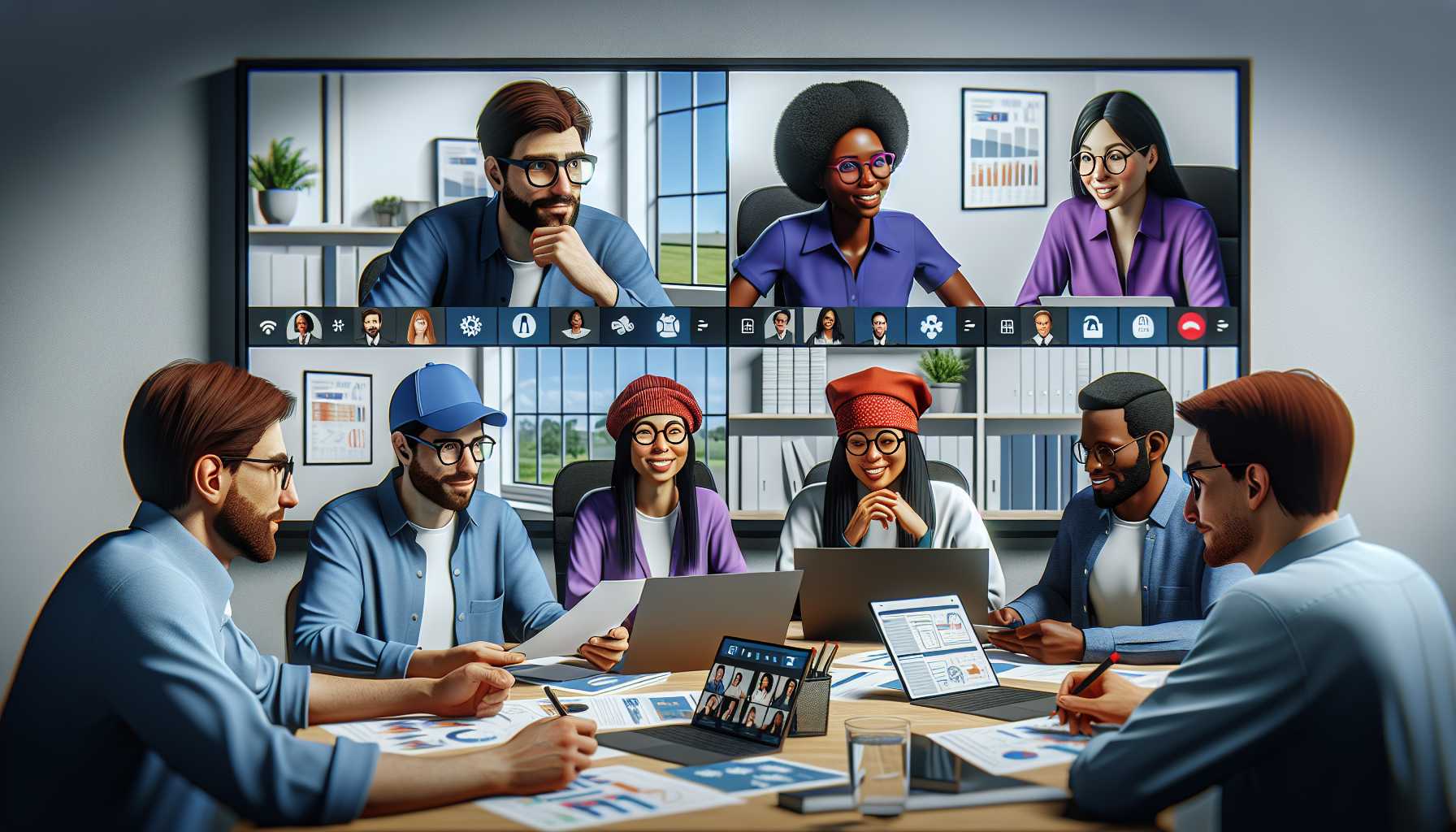Elon Musk’s X Takes on Video Conferencing Giants
Elon Musk’s X, the rebranded social media platform formerly known as Twitter, isn’t just settling for dominance in social networking. The platform has announced efforts to challenge LinkedIn in job listings and PayPal in payments, and now it’s targeting video conferencing with a new tool aiming to rival the likes of Zoom, Google Meet, and Microsoft Teams.
The announcement came when X employee Chris Park tweeted about their first internal conference using the new tool. Park mentioned that the feedback was robust, highlighting features like speaker pinning and better notifications when users join or leave. Elon Musk, always the tech evangelist, responded with a fire emoji—perhaps the closest thing to an official confirmation.
The tool will enable users to start new meetings directly from the iOS app, according to app researcher, P4mui. Another researcher, Nima Owji, revealed that each X conference would have a unique code for participants.
Although no clear release date has been announced, keep an eye on X’s innovations, especially as they already allow live video streaming through their Spaces product. As X dives into more sectors, the digital world gets increasingly competitive. It will be intriguing to see how they navigate the privacy and security concerns that have plagued new features in the past.
AI-Powered Platforms Are Revolutionizing the Legal Industry
Legal work has always been labor-intensive and time-consuming, requiring attorneys to sift through mountains of data to build cases. Enter Supio, an AI platform focused on personal injury law, which emerged from stealth with a $25 million investment led by Sapphire Ventures. Supio aims to streamline the entire process by using generative AI to automate data collection and aggregation.
Supio’s AI doesn’t just summarize information; it meticulously organizes files and identifies snippets useful for drafting and presenting cases. Jerry Zhou and Kyle Lam, the co-founders, define the platform as not just a time-saver but a critical asset in understanding complex data and extracting pivotal connections.
Notably, Supio has already been employed in high-stakes cases. For example, TorHoerman Law successfully utilized Supio’s capabilities during a significant lawsuit against Abbott Labs, handling over 40,000 pages of medical records swiftly.
Planera: Modernizing Construction Project Management
The construction industry is synonymous with intricate project management tasks, often employing multiple software tools to track progress and meet contractual obligations. Enter Planera, a startup blending the flexibility of digital whiteboarding with the high-level capabilities of traditional construction project management software. Planera raised $13.5 million in a new funding round, with its platform already being adopted by several contractors.
Unlike the legacy systems, which are cumbersome and require significant technical expertise, Planera offers an intuitive, real-time collaborative interface. Co-founder Nitin Bhandari emphasizes that the value lies in its ability to facilitate effective communication among stakeholders, thereby improving project outcomes.
nOps and the Power of Cloud Spend Optimization
The world is moving to the cloud, but efficient cloud usage remains a challenge. Enter nOps, a company exclusively serving AWS clients with software designed to optimize their cloud budgets. Over the past 18 months, nOps has grown exponentially, helping clients manage over $1.5 billion in AWS cloud spend.
Founded by JT Giri, who shifted from network engineering to cloud optimization, nOps uses AI and machine learning to automate cloud cost-saving measures. The platform handles tasks like resource scheduling, rightsizing, and stopping idle instances, ensuring efficient cloud usage.
Pinecone and the Evolution of Vector Databases
Pinecone, a pioneer in vector database technology, has announced their serverless database’s general availability on AWS, Azure, and Google Cloud. The company continues to push boundaries in the vector search space, a crucial component of Retrieval Augmented Generation (RAG) use cases in generative AI.
Founded by Edo Liberty, Pinecone leverages random projections for vector search, with the goal of making the technology more accessible. The serverless offering simplifies infrastructure management, allowing users to scale effortlessly. Key new features include bulk data import and Role-Based Access Control (RBAC), which improve governance and ease of use.
Accenture and AWS: Enabling Responsible AI Development
Responsible AI is more than just a buzzword—it’s a necessity for sustainable and ethical technological advancement. Recognizing this, Accenture, in collaboration with AWS, has launched the Accenture Responsible AI Platform powered by AWS. This platform is designed to help organizations evaluate their AI readiness, assess their AI applications, and ensure compliance with evolving regulations.
The tool offers flexible features for companies at various stages of AI implementation, making it a comprehensive guide for responsible AI practices. The partnership integrates AWS’ robust cloud infrastructure with Accenture’s expertise in responsible AI, creating a powerful resource for enterprises. Their initiative comes at a crucial time, as businesses grapple with maintaining ethical standards while harnessing AI’s transformative potential.
Aleph Alpha’s Open-Source AI Models: A Game Changer
Aleph Alpha, a German AI startup, has taken a bold step by releasing two new large language models (LLMs) under an open license. The models, Pharia-1-LLM-7B-control and Pharia-1-LLM-7B-control-aligned, are designed for generating concise, controlled-language responses across multiple European languages.
This open-source approach allows developers to build on Aleph Alpha’s work, fostering innovation and transparency in AI development. This strategy aligns with impending EU regulations and addresses public demand for ethical AI practices. By open-sourcing not only the models but also the training code, Aleph Alpha positions itself as a pioneer in compliant and responsible AI. This could reshape the landscape, encouraging other companies to adopt similar transparent practices.
Conclusion
This comprehensive overview of recent technological advancements highlights the transformative impact of AI and other innovative solutions across multiple industries. From legal tech and video conferencing to construction management and AI ethics, the tech landscape is continually evolving. Staying updated with these trends is crucial for anyone interested in the intersection of technology and business.

